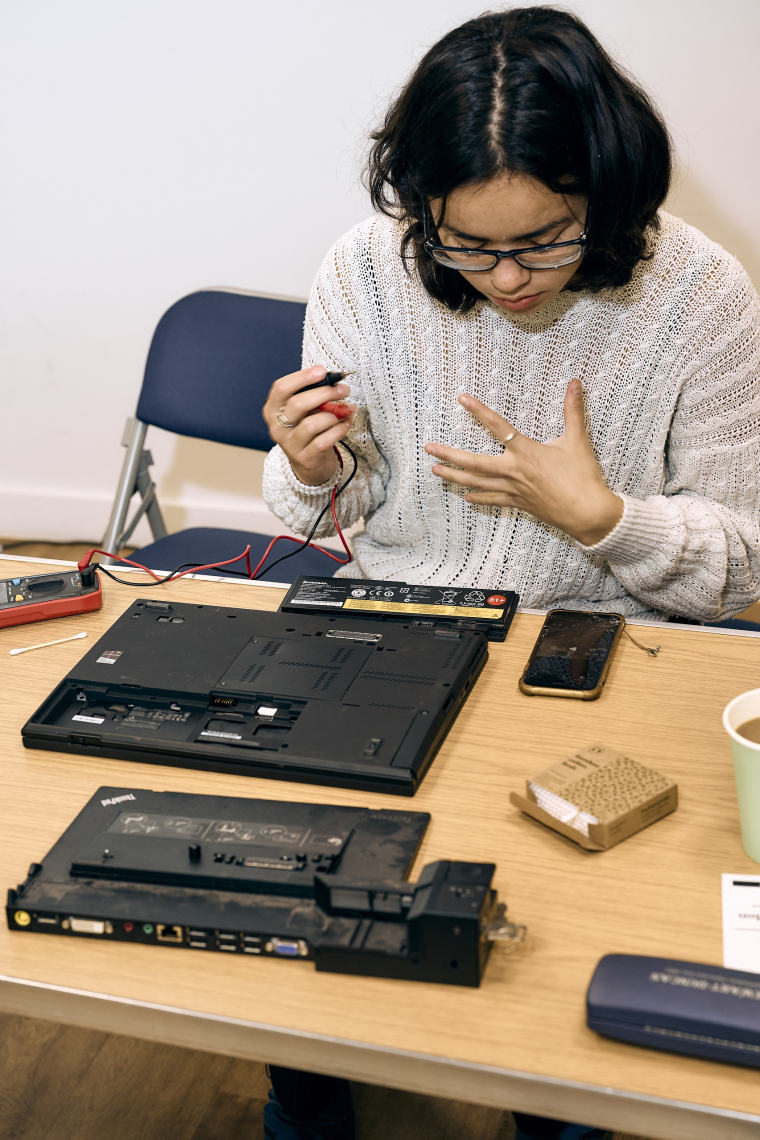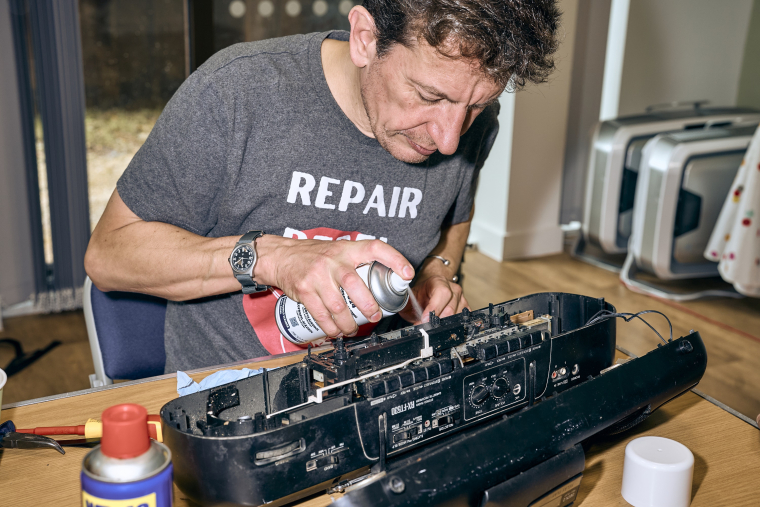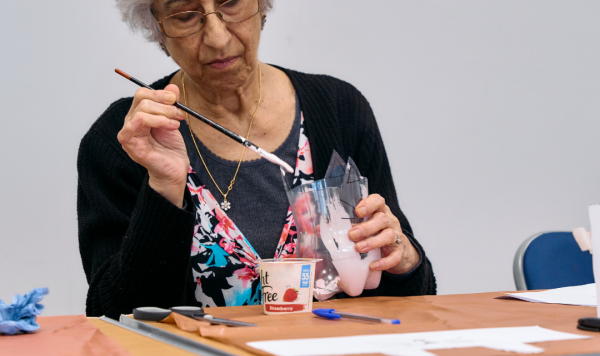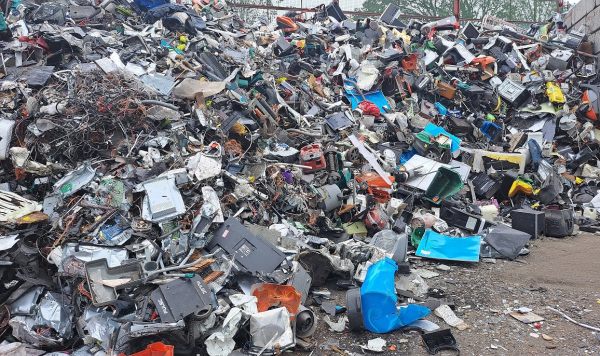With the average London household having 31 unused electrical items lying around, repair is a vital way to bring them back to life, save vital resources and prevent unnecessary waste.
For the team at Kilburn Repair Club, it is also a way to create a conversation around conscious consumerism, share important skills, bring the community together and support residents economically.
They were formed after the 2022 Possible project, with the Fixing Factory providing training thanks to North London Community Fund grant.
Kilburn Repair Club has now gone full circle, having successfully applied for the same funding this year to support a culture of reuse and repair in partnership with Kilburn State of Mind.

Sorcha Owens gives up her spare time to help manage the not-for-profit organisation, having originally signed up for the Five Weeks of Fixing training initiative.
“I fix a lot of things at home, and learn by watching online tutorials,” she explained.
“I was motivated by the environmental aspect but have been able to help friends and family, and thought there must be a bigger reach.”
For Sorcha, that reach goes beyond the obvious environmental benefits of helping to keep an item in circulation for longer.
She explained: “We have a cost-of-living crisis and there is loneliness among the older population. Everyone has something at home they need to get fixed, and I’ve got to know so many different people.”
She is reluctant to give out sustainability tips, admitting that it is “unfair to put the onus on consumers.”
With increasing demand for the latest technology and continued evidence of planned obsolescence, it is no surprise that a staggering 180 million new electrical products are sold in the UK every year.
While the government has consulted on making producers more responsible for collecting and dealing with electricals at the end of their life, there is currently little being done to protect the precious metals being depleted from the earth at an unsustainable rate or reduce the carbon emissions associated with the unnecessary production and transportation of these items.
Sorcha added: “I have a DIY approach to life in general. It means not thinking of things as single use even if they are marketed that way.
"For me, living sustainably is about making the items I already own last longer. Whatever you have, try and keep using it. If you’re thinking about buying a new item, consider if you can live without it first. It can be tempting to buy the cheapest option, but if it’s within your means, then invest in a higher quality item that will last longer.
"However, I don’t think there is just one way to be sustainable and we shouldn’t be judging other people. We need to look at the bigger picture."

For volunteer fixer Fabrice Arfi, a history of environmental campaigning led him to Restart Parties –community events where people come together to meet, mingle, and share in the fun of repair.
“I have always been in a band and never had any money, and was always keen on buying the most broken guitars and amps I could find, and trying to work out myself where things went,” he explained.
He is realistic about the impact Kilburn Repair Club can have on the climate emergency through fortnightly community hubs, but remains passionate about inspiring sustainable change.
“Our entire civilisation is based on the production of surplus items, so it feels like a race to produce more and more stuff.
“You are dependent on the infrastructure around you, so that might mean having to go the extra mile. If you buy something electrical and it has a battery inside, ensure it is accessible and you can replace it yourself.
“There is no quick fix, and all we can really do is talk to people and share the joy of fixing things. The future for the climate is not bright but the more people who take part the more we can make a difference.”


